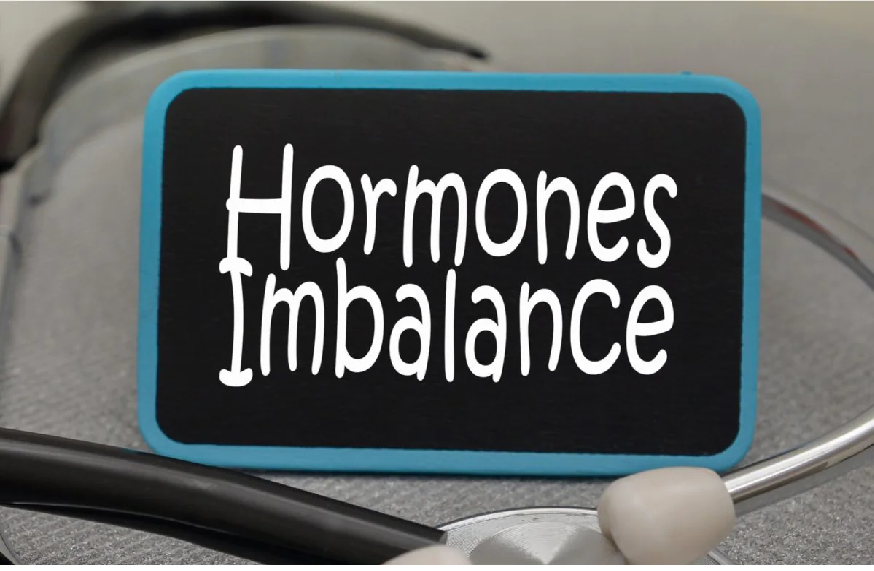Introduction:
Over the past few years, the idea of understanding and managing your hormones has become mainstream. For example, most women understand that their menstrual cycle is in part controlled by a hormone known as estrogen . However, many do not realize that their body’s hormone levels can be modified with diet and lifestyle choices. In fact, over-the-counter supplements, or even prescription medications like birth control pills or hormone replacement therapy (HRT) can manipulate your hormones. While it is an exciting opportunity to understand and manage these key hormones in your body, it can also be confusing to know which are the best lifestyle choices for you.
What is Hormonal Imbalance?
Hormonal imbalance occurs when your body does not have enough of the hormones it needs to be healthy and functioning correctly. These imbalances can lead to a number of diseases, ranging from mild symptoms to severe conditions. Hormonal imbalance can also impact your ability to process food, maintain proper metabolic function and even aid in athletic performance .
How do you know if you might have hormonal imbalance/ hormonal imbalance symptoms?
There are many ways that you can become aware of whether or not there is an imbalance in your body’s hormone system. The best way is through continual monitoring by yourself or with the help of a professional (such as a doctor or nutritionist).
Causes of Hormonal Imbalance:
Any imbalances can arise for many different reasons. However, there are two main causes of hormonal imbalance:
Hormonal Imbalance symptoms from Everyday Lifestyle Choices : These imbalances can occur for a variety of different reasons (such as poor nutrition, excessive stress or insufficient exercise) and are preventable with an improved lifestyle.
Hormonal Imbalance from Birth: It is possible to be born with a hormonal imbalance that can affect your body for the rest of your life. These hormonal imbalances can range from mild to severe. For example, one possible imbalance would be having high amounts of androgens , which are male-like hormones in women.
What are the hormonal imbalance symptoms?
The symptoms of this imbalance would include showing signs of excessive hair growth and thinning or loss of hair on your head; an enlarged clitoris or overly-enlarged breasts (similar to what may occur during puberty). Women with these androgenic imbalances are often diagnosed with Polycystic Ovarian Syndrome (PCOS).
Diseases Associated with Hormonal Imbalance:
There are various diseases that can occur due to hormonal imbalance. These disorders can be diagnosed with a blood test called androgenics. This test will look at the level of your androgens in your blood, as well as the level of your estradiol in the blood.
Polycystic Ovary Syndrome (PCOS): While this is not an actual disease, it is regarded as hormonal imbalance symptoms that is typically seen in women of childbearing age. PCOS is characterized by irregular or absent menstrual cycles, excessive hair growth (hirsutism), acne , oily scalp , excessive hair growth on the face, chest or abdomen and infertility .
Cushing’s Syndrome: This is a hormone imbalance that results in excess cortisol production. It can be diagnosed by having high levels of cortisol in your blood.
Fibrocystic Breast Disease: This is a hormonal imbalance that causes cysts to form and can cause breast pain, breast tenderness or an abnormal appearance of the breast.
Foods that can help regulate your hormone levels:
- Low-fat dairy foods
- A small serving of lean meat
- Many fruits and vegetables
- Green tea
- Almonds
Possible Treatment for Hormonal Imbalance:
There are several options for treating hormonal imbalance. Some of the best and most effective for managing your hormones is through nutritional supplementation with a natural product that has been clinically proven. One, such as BioForce’s Sermorelin (available in 1mg or 2mg) will maximize your body’s ability to produce estrogen. This is important considering that it does not have to make up for the lack of production, like medication or birth control pills do.
Other products may include:
Natural progesterone : For women who are unable to produce adequate amounts of estrogen, there are natural progesterone supplements that can be taken by mouth on a daily basis. This can effectively increase your levels of estrogen and help to regulate the process of aging. Research has shown that women who make use of bio-identical progesterone experience changes in their body that are associated with the changes seen in women during menopause (such as increased risk of heart disease and osteoporosis).
Nutritional supplements : There are several supplements that can be taken to help balance your hormones. These include vitamins, minerals and herbs. Some of these include GABA, Vitamin B6, Fish Oil , Zinc and Magnesium .
Weight training: It is well known that consistent weight training increases your body’s testosterone levels. This is an important consideration for women looking to improve their body composition and improve hormone levels through exercise.
Conclusion:
There are many great benefits to managing your hormones through the use of nutritional supplementation. In fact, these products should be used in addition to a healthy lifestyle for long-term health benefits.

